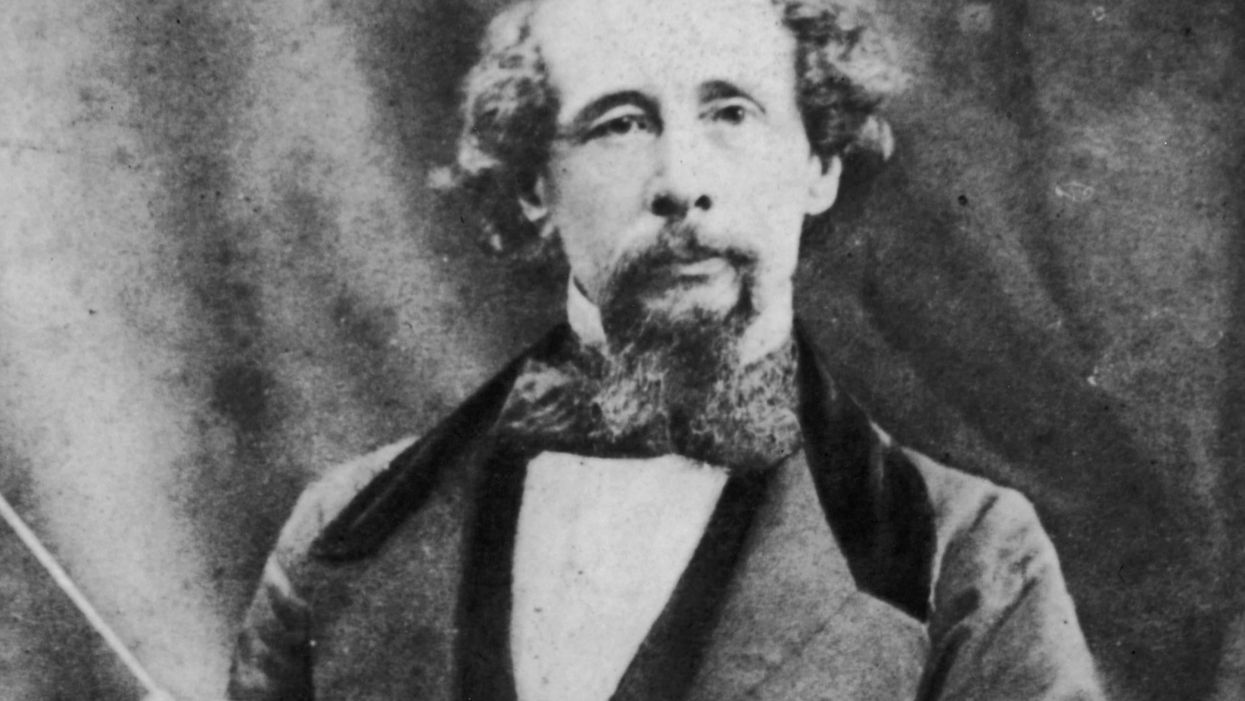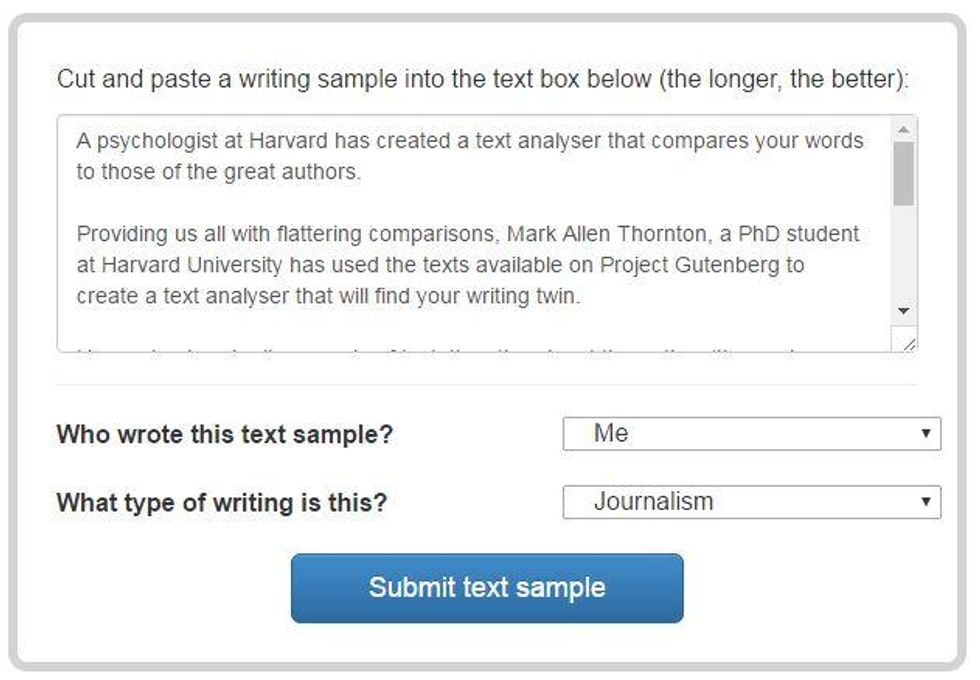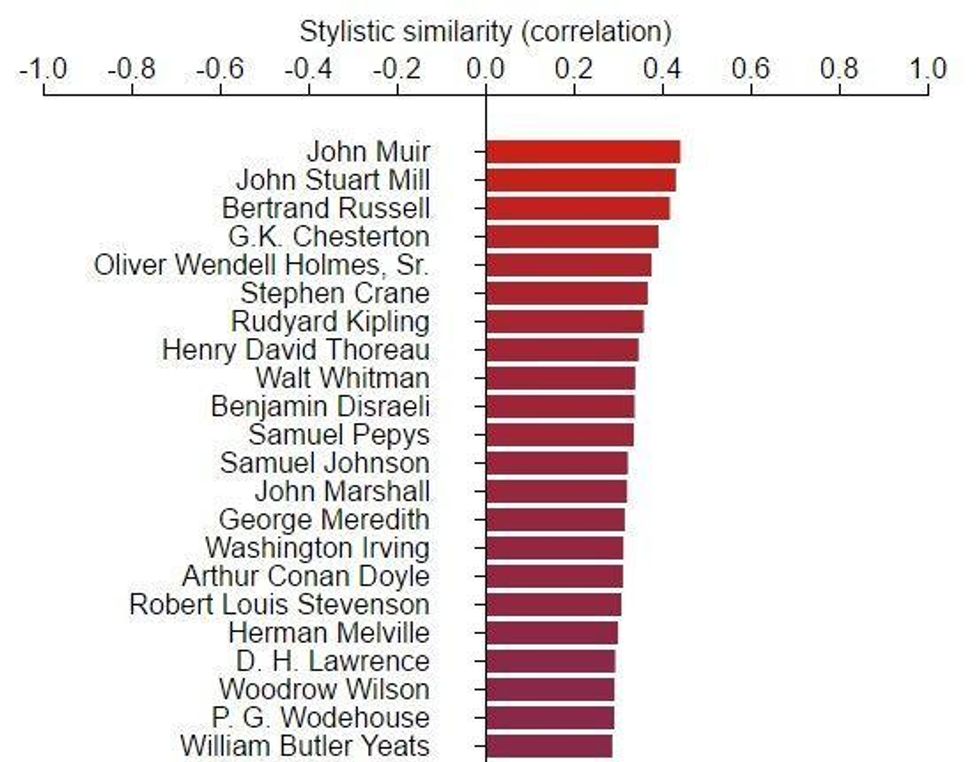
A psychologist at Harvard has created a text analyser that compares your words to those of the great authors.
Providing us all with flattering comparisons, Mark Allen Thornton, a PhD student at Harvard University has used the texts available on Project Gutenberg to create a text analyser that will find your writing twin.
Users simply submit a sample of text, they then input the author (themselves, a friend, a great author), and the genre of writing (romance, gothic, journalism, autobiography).

It requires a lengthy piece of text for accuracy, and the machine learns the more input it receives.
Click here for Thornton's website to discover which author you write like.
The analyser then provides you with a list of matches, ranked from most similar to least.
Speaking to indy100, Thornton explained how this analysis works, extrapolating out from a sample of text.
The key insight is that many higher-level stylistic properties (what a reader might recognize as style) are reflected in low-level features such as the relative use of different grammatical words and punctuation marks.
Thornton explain that his approach is derived from a study on 'Quantitative patterns of stylistic influence in the evolution of literature.'
He says he created the text analyser app for fun.
At the moment the text analyzer and stylometry in general aren't a part of my formal (psychology) research program. I do informal extra-disciplinary data-science-ish research on a number of topics on my blog as a hobby
Thornton has also created a book recommender, suggesting books you might like as an alternative to Amazon or Good Reads.
Text analysers have been used by English academics and journalists to identify works with ambiguous authorship, intentional or otherwise.
In 2007 academics at the University of Rome (wrongly) identified Domenico Starnone as the person behind the nom de plume 'Elena Ferrante'.
In 2015 a lost Shakespeare play was 'found' by two researchers at the University of Texas, who used a text analyser to attribute the play 'Double Falsehoods' as a work Shakespeare co-authored with John Fletcher.
While they represent an imperfect science, it's always nice to find out what talented person a machine thinks you share attributes with.
More: This woman had a brilliant response when someone called her 'just a nurse'
More: A really simple change is saving thousands of cyclists every year














